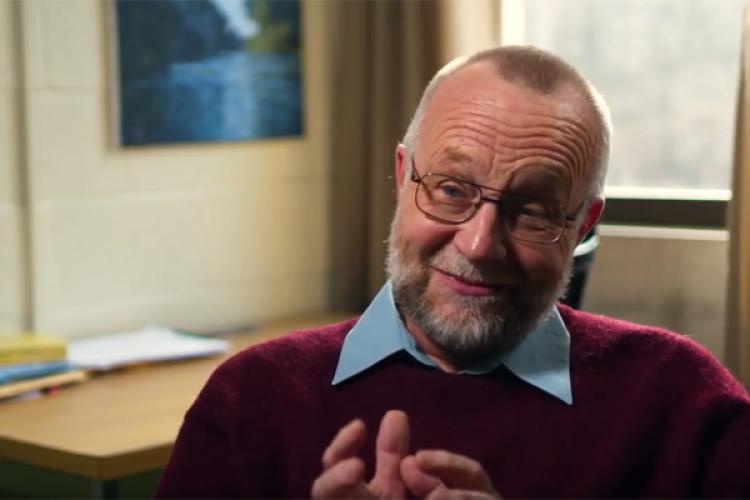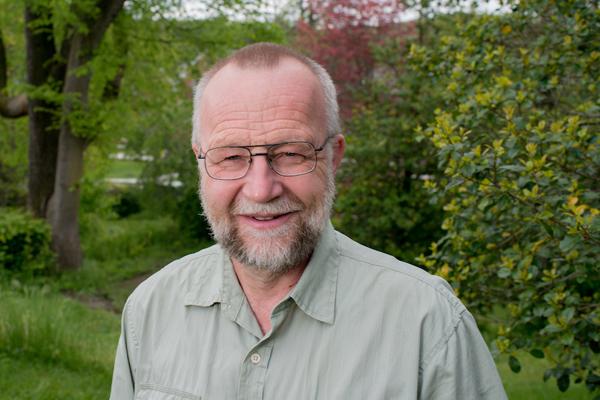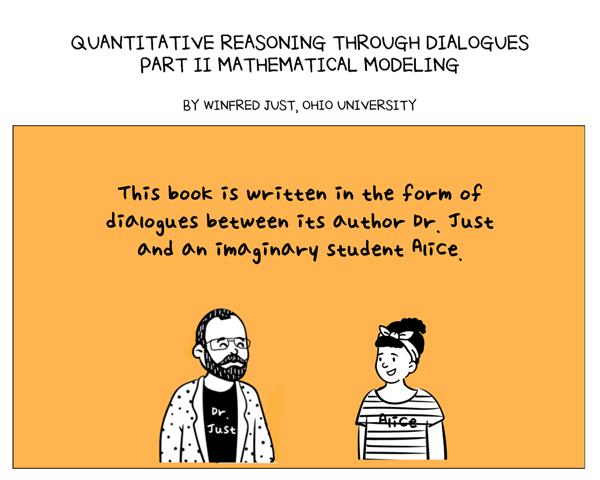

The Ohio University community mourns the passing of Professor Winfried "Vinny" Just on Nov. 2.
A memorial service will be held on Saturday, Dec. 3, at 1:30 p.m. in the 1804 Lounge on the fifth floor of the Baker University Center.
Just joined the Mathematics Department in the College of Arts and Sciences in 1989, following postdoctoral fellowships at the Mathematical Sciences Research Institute in Berkeley, Calif., and the University of Toronto. He earned his Ph.D. at the University of Warsaw in Poland.
Just was a beloved colleague and mentor.
'The Number of Sunny Afternoons is Finite'
"This is a very sad day. The world has lost a great mathematician and, we have lost a dear friend," Todd Young, professor of mathematics, said. "Most of you know that Vinny worked extremely hard. He often rose early in the morning, even as early as 3 a.m. to begin working. Whatever project he was working on, whether research, exposition or teaching, he threw himself into it fully. He was still working until the end."
"Vinny would also often finish working in the mid-afternoon. He told me about 10 years ago that he had realized that the number of sunny afternoons is finite. He maintained a cheerful attitude and enjoyed life to the very end. Vinny, we will miss you sorely. Thank you for all that you did," Young added.
Putting His Students First
Just's colleagues are quick to cite his commitment to students and his professionalism.
Blake Regan, associate professor of instruction and an OHIO alumnus, talked about "the honor of having Dr. Just as a professor, colleague, and friend. The only things that surpassed his brilliance was his passion for life and sharing his love of what he did. My fondest memory of him as a professor was when I had him for an independent study in bioinformatics with three other undergraduate students that were way out of our league (all of us had no prior experience in the field), and he told us, 'You guys aren’t very good at this, but you try hard. That I can work with.' His honesty was inspiring."
"My fondest memory of him as a colleague is our countless conversations of how to engage students and get them to make use of office hours. I truly appreciate the opportunity to have had him as a teacher, mentor, and friend and he will be eternally missed," Regan noted.
Martin Mohlenkamp, professor and chair, said, "Vinny was extraordinarily dedicated to his students and work. In the winter of 2021, he had back pain, which he thought was due to a combination of sitting too much writing a book and shoveling snow. When the pain became too much, he went to the emergency room, and they eventually determined that cancerous lesions had cracked some vertebrae in his spine. The doctors said he needed emergency surgery the next morning. He told them that the surgery would have to wait until the following day, because he first needed a day to get everything arranged so his classes could be taught while he recovered from the surgery."
Professor Alexei Davydov shared that Just's biggest concern was about his students. "He was working with one of our HTC majors, advising her on her thesis project. Making sure that her project would not be affected whatever happened to him was his main priority. A couple of months ago he had some positive news from the doctors and immediately started making plans for the next year, responding positively to my requests to supervise more HTC students."
"Being as intelligent as he was he must have know what is happening to him but he was not accepting it — to the last days he remained a professor of OU, devoted to his students, passionate about mathematics and the department," he added.
Monica Hilverding, associate professor of instruction, said, "Vinny will be remembered for his tremendous dedication to his students, the math department, and the entire university. Vinny attended Quantitative Reasoning instructor meetings throughout his treatments and provided such meaningful discussion. I am astounded that he passed only a couple of days after our last meeting. He will be truly missed."
Jinhwa Lee, assistant professor of instruction, noted that students enjoyed Just's contributions through his comics. "We’ve been working on QR Comics, and I was about to share with Dr. Just how much students liked this comic," she said, referring to his QR comics book Mathematical Modeling that the group was discussing the week Just passed.
A Researcher and a Communicator
Just's areas of expertise included dynamical systems and applications of mathematics to biology. Most recently, he put his math to work fighting infectious disease.
In collaboration with other members of the Infectious and Tropical Disease Institute at Ohio University, he studied the transmission of Chagas disease ,a vector-borne infection common in rural areas of South and Central America.
"Traditionally astronomy, physics, and engineering have been the heaviest and almost exclusive users of advanced mathematical techniques other than statistical methods. In recent years however, applications of mathematics to biology have been mushrooming," Just wrote on his website. "This trend is being driven by two forces. While problems in the physical sciences often lead to elegant and parsimonious mathematical models, living creatures tend to be complicated and unpredictable, which makes mathematical models of them messy and often intractable by traditional methods. Fortunately, thanks to the tremendous power of contemporary computers, these messy models of biological systems can now be studied numerically, often with enlightening results. This makes meaningful ( i.e., biologically realistic) modeling in the life sciences possible ."
"On the other hand, contemporary technology enables biologists to generate huge amounts of data, such as the billions of letters that make up the genome sequences of higher organisms. Analyzing these data and translating them into understanding of the workings of organisms or ecosystems requires mathematical models and algorithms based on these models. The need for such models and algorithms makes applications of mathematics to biology a necessity ," Just wrote.
Just thoroughly enjoyed talking about math through art, especially the comics and play scripts that he loved to write.
When COVID-19 struck, Just instantly went to work, delivering his book COVID-19 Unmasked: The News, the science and common sense , which tackles the persistent and sometimes controversial questions people have been asking about COVID in a new, conversational way.
He was quick to join OHIO's news crew in an Ask the Experts video about how mathematical models can predict the spread of a disease.
Watch Just talk about his work in a 2016 Science Cafe video .



